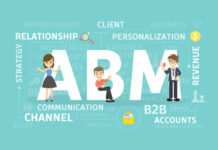Your employees’ contribution to productivity, customer satisfaction, and the overall success of your B2B company are crucial. A company’s objective and success, however, cannot be achieved if a worker is improperly or insufficiently trained.
There is a chance of subpar performance when it comes to remote workers because there is no on-the-job training or face-to-face interaction. Fortunately, advances in technology have made it easier to onboard new remote workers for your B2B firm.
Why is it so important to onboard remote workers?
There are two answers to this question. To begin with, the era of remote employees has here. Unfortunately, the COVID pandemic has driven many organizations to work more flexibly. During the height of COVID, pandemic-related shut-ins and quarantines gave rise to doing business remotely.
Indeed, remote work is on the rise, with over 45 percent of the American workforce now working remotely in either a full-time or part-time hybrid role. Furthermore, employees are ecstatic about this development and want more remote work alternatives. In short, remote work is here to stay, and it is only projected to increase in the future.
Second, an inadequately trained remote worker might result in costly errors, decreased productivity, and lost time rectifying errors or retraining. Furthermore, failing to adequately onboard remote workers may result in low morale, increased staff turnover, and substandard productivity. All of these repercussions can lead to decreased sales and a loss of client loyalty since poor customer service or work performance continually leads to a loss of customer retention and sales.
Find the Most Effective Onboarding Solution
Fortunately, remote workers may already access your company’s files and data through the internet. This provides providing remote staff with access to training resources a breeze. But what about effective onboarding solutions and training practices? This is where using a learning management system may be really beneficial for your B2B organization.
To clarify, a learning management system (LMS) is specially built to tick all of the boxes in terms of staff training. Furthermore, this system can keep your staff in compliance, improve interoffice interactions, and give data and statistics on how your training tactics are helping employees learn and thrive.
Furthermore, an LMS integrates seamlessly across devices, allowing your staff to access your training materials from their computers, phones, or tablets. An LMS houses all of these training materials, such as instructional films, standard operating procedures, and FAQs. This makes training content simply available and findable for all employees, whether they are remote or in-office.










